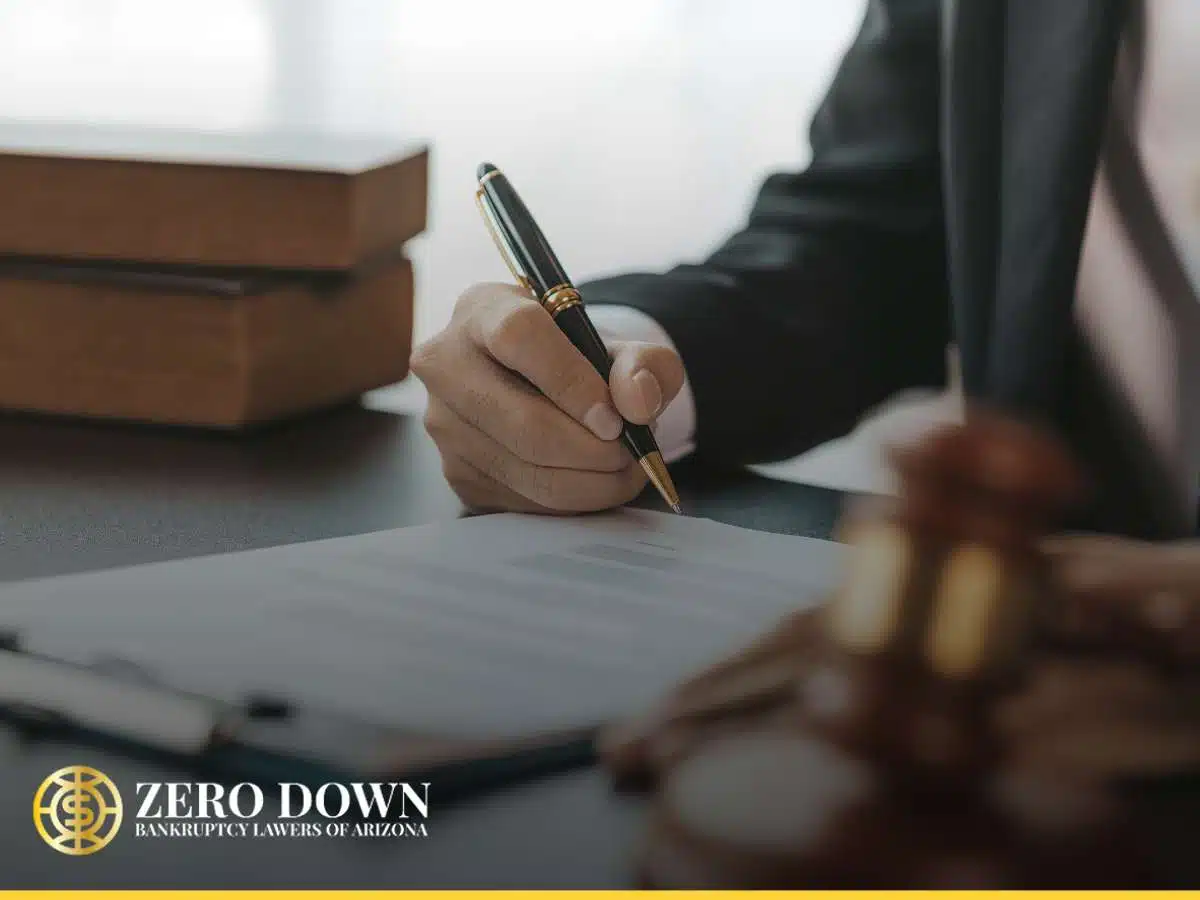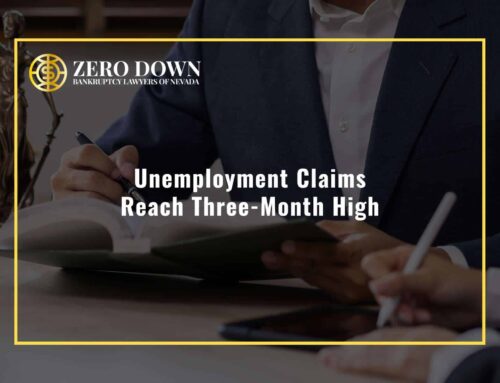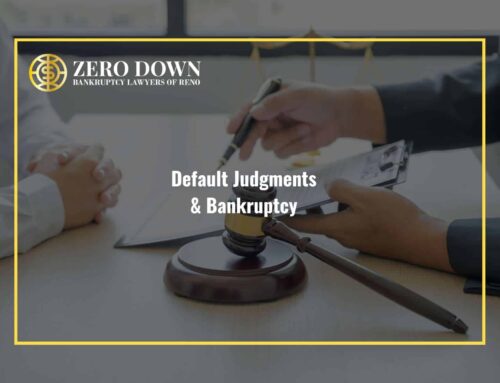With the market as volatile as it is, more people are turning away from risky investments like stocks and looking for options with more security and stability. A certificate of deposit, or CD, will usually offer more favorable interest rates than a savings account from a bank, and comes with very little risk if the financial institution is backed by the FDIC. They vary in term length, so it could be several months or even years before the customer can theoretically access their funds again after making the principal deposit. Therefore, if the customer is struggling with debt and considering bankruptcy, what happens to their CD can become a relevant question. Does a bankruptcy debtor have to give up a CD to file for bankruptcy? Which of the debtor’s assets are protected by exemptions in bankruptcy? Read on for the answers to these questions and more. If you are considering filing for bankruptcy in the Phoenix area, you can get feedback on your situation without risk or financial obligation. Our firm offers reputable service with affordable payment plan options. Our payment plans for chapter 7 bankruptcy start as low as Zero Dollars Down. For more information, call 602-609-7000 to schedule your free consultation.
Why Invest In a CD?
CDs are not known for having the highest interest rates out of all of the options available to potential investors. However, they are known for being one of the most secure forms of investment as they offer guaranteed returns. With so many people losing out on investments as more companies declare bankruptcy, a guaranteed form of investment like a CD is becoming more popular. The investor knows how much they will be receiving from their investment and when. Some CDs are short-term and only last for a few months, while others last for several years. The investor won’t incur any fees or penalties if they wait until the term has completed before making a withdrawal. This is when the account is considered to be matured.
Can I Use Bankruptcy Exemptions To Protect a CD?
Arizona is not among the states that allows bankruptcy debtors to select federal bankruptcy exemptions rather than state bankruptcy exemptions. The federal exemptions have a wildcard exemption that the debtor can use on any asset of their choosing, such as a CD. Arizona unfortunately does not offer a wildcard exemption. Arizona only offers a fairly small bank account exemption- $300 for an individual or $600 for a married couple. This likely is insufficient to cover any funds invested into a CD account. There are exemptions available to protect other types of savings accounts, like a 529 College Savings Plan, a pension, or a 401(k). However, there is no specific bankruptcy exemption in Arizona meant to protect savings invested into a CD. Unfortunately, that means that filing for bankruptcy could mean losing savings invested in a CD account.
If you know that you will lose a CD if you file for bankruptcy, ideally you would wait until after the account has matured and the funds have been withdrawn and spent before filing your bankruptcy petition. But if a severe form of creditor collection is pending, like a lawsuit, wage garnishment, or repossession, it may be better to let the CD go in order to gain protection from the automatic stay sooner. For more assistance with these decisions and other bankruptcy-related issues, contact our law office for your free consultation at 602-609-7000.
Which Assets Can I Protect With Arizona’s Bankruptcy Exemptions?
Because Arizona doesn’t allow the use of federal exemptions and doesn’t offer a wildcard exemption, a debtor should be extremely familiar with the state exemptions before drafting their schedules and filing their petition. When reviewing Arizona’s bankruptcy exemptions, keep in mind that they represent equity in an asset- for example, if a house is worth $500,000 but has a $400,000 mortgage, it only has $100,000 equity for the purposes of the homestead exemption. Most retirement savings are safe in an Arizona bankruptcy filing, as are payments like Social Security Income and child support. If you are unsure about whether or not any of your assets will be exempt in bankruptcy, call 602-609-7000 for your free consultation with our firm.
-Homestead exemption, can be used on house, condo, or mobile home: $400,000
-Motor vehicle: $15,000 unless the person is physically disabled, in which case it increases to $25,000
-Household goods and furnishings: $15,000
-Wearing apparel: $500
-Wedding and engagement rings: $2,000
-Firearms: $2,000
-Food, fuel, and provisions: No set dollar amount, but six months’ worth for the household
What To Do If You Forgot To Include An Asset In Your Bankruptcy Petition
If you have a relatively small amount invested in a CD or it has a long term, it’s possible that the fact you even have a CD could slip your mind during the bankruptcy preparation process. If you forget to list your CD with the rest of your assets, things could become complicated if your trustee discovers evidence of the account. The trustee may need to delve further into your financial situation to make sure that there aren’t other investment accounts that you failed to include in your petition. These kinds of situations could mean case delays, asset seizures, case dismissal, and in extreme circumstances could even lead to the debtor being charged with bankruptcy fraud. The good news is that a bankruptcy debtor can file an amendment to their petition if they discover a mistake or a forgotten item that needs to be added.
When an asset has been omitted from a bankruptcy schedule, the debtor can file an amendment to address the problem. For an omitted CD, the Statement of Financial Affairs may need to be amended in addition to any applicable bankruptcy schedules. The filing fee for a bankruptcy amendment is $34, and the amended documents must be served on all parties involved. During your case, you will need to complete credit counseling courses, attend the 341 Meeting of Creditors and possibly additional hearings, comply with other trustee requests, and more. Filing an amendment will only add to your lengthy to-do list during a time that is already stressful. Make sure your petition is filed accurately the first time around by hiring experienced bankruptcy professionals to handle your case for you. At Arizona Zero Down Bankruptcy, our team offer unbeatable service and affordable payment options starting at zero dollars down. To learn more with your free consultation, call 602-609-7000.
Phoenix Zero Down Bankruptcy Lawyers
The balance from a CD could be used to fund a bankruptcy filing, but not everyone has a sum of cash like that available right before declaring bankruptcy. But without filing for bankruptcy, many people struggling with debt will never be able to afford to file for bankruptcy. Our lawyers wanted to solve this issue, so we offer payment plan options starting as low as Zero Dollars Down. Clear your debts with chapter 7 bankruptcy and stop your creditors from taking damaging actions against you like lawsuits, foreclosures, repossessions, and more. When you’re ready to discuss your situation with an experienced Phoenix bankruptcy professional free of charge, call 602-609-7000 or contact us to schedule your free bankruptcy consultation with our Zero Down Bankruptcy Lawyers of Arizona.
Arizona Offices
Phoenix Location:
343 W Roosevelt Street, Suite #100
Phoenix, AZ 85003
Email: [email protected]
Phone: 602-609-7000
Mesa Location:
1731 West Baseline Rd., Suite 101
Mesa, AZ 85202
Email: [email protected]
Glendale Location:
20325 N 51st Avenue, Suite #134
Glendale, AZ 85308
Email: [email protected]
Tucson Location:
2 East Congress, Suite #900
Tucson, AZ 85701
Email: [email protected]











